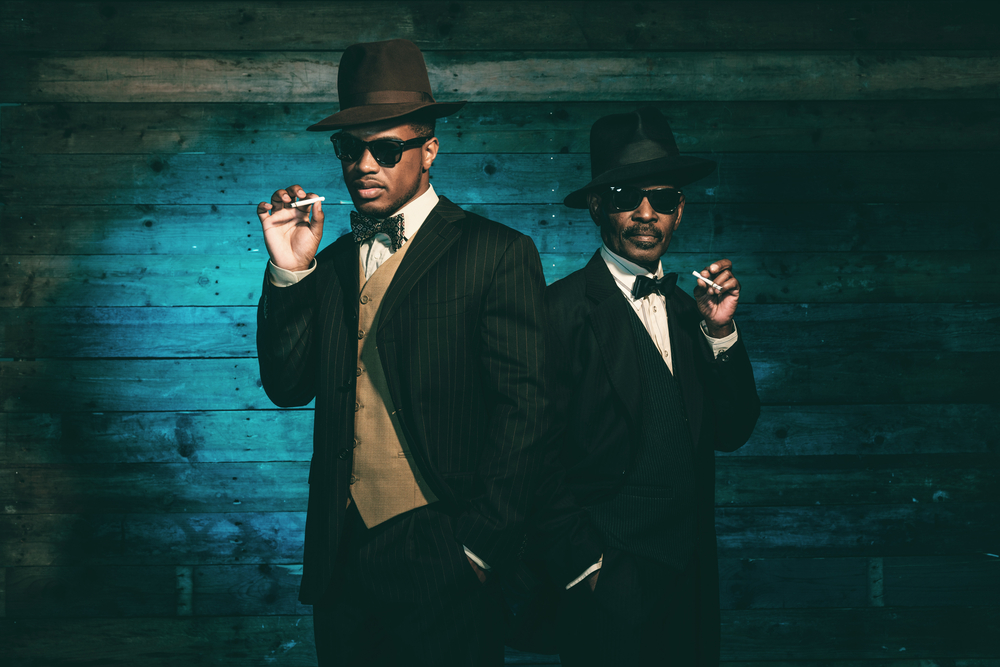For decades, Americans have been captivated by gangster and mafia culture. From classic movies like The Godfather to popular TV series such as
¨The Sopranos,¨ the allure of organized crime has permeated various facets of entertainment. But what drives this obsession? What is it about the dark underworld of crime, power and loyalty that makes Americans admire and even romanticize figures who live outside the law?
At the core of this fascination lies the tension between order and rebellion, power and vulnerability. Gangsters, especially in popular culture, symbolize the ultimate rebel — people who rise above their circumstances, create their own rules and live life on their own terms. These figures — flawed as they are — often command a sense of admiration and intrigue. But there’s more to this allure than just a surface-level admiration for lawbreakers.
The roots of American gangster culture
The romanticized image of the gangster in America began to take shape during the Great Depression. In a time when ordinary Americans were struggling with poverty and economic collapse, figures like Al Capone, John Dillinger and Lucky Luciano emerged as symbols of defiance against a system that seemed broken. These men — often from immigrant backgrounds — rose to prominence by defying the law, exploiting opportunities and outsmarting the establishment.
For many Americans, these figures weren’t just criminals — they were anti-heroes — people who seemed to be winning against an unjust system. The gangster’s success in the face of widespread hardship resonated with the American public, planting the seeds for a culture that would glorify organized crime for decades to come.
At its core, gangster culture taps into a deeply rooted American ideal — the pursuit of the American Dream. However, rather than achieving success through hard work and lawful means, gangsters often take a shortcut. Their rise to power, wealth and influence symbolizes an alternative path to success — one that is riddled with danger, violence and defiance of the law.
The contrast between the traditional “work your way up” philosophy and the gangster’s “take what’s yours” mentality strikes a chord in a society built on individualism. The gangster’s ability to achieve financial success and social power through sheer cunning, often in the face of adversity, makes them a potent symbol of an alternative version of the American Dream — one that resonates with rebellion, risk and reward.
The role of media and entertainment
Hollywood has played a crucial role in shaping America’s love affair with gangster culture. Movies like Scarface, Goodfellas and The Godfather transformed real-life criminals into larger-than-life figures. These films — with their dynamic characters, lavish lifestyles and dramatic storylines — offer viewers a glimpse into a world where power and violence are intertwined, but so are loyalty and family.
The mafioso is often depicted as both ruthless and honorable. Characters like Vito Corleone are seen not just as criminals but as complex individuals with a strong code of ethics and an unwavering loyalty to family. This duality — where a person can be both a feared criminal and a respected family man — draws in audiences, who are intrigued by the contradiction.
Television series like¨The Sopranos¨ brought mafia culture into the living rooms of millions of Americans. The show didn’t just focus on the violent aspects of organized crime; it delved into the personal lives of its characters, showing them as deeply flawed, yet relatable people.
By humanizing gangsters and mafia members, shows like ¨The Sopranos¨ make it easier for viewers to empathize with them. Tony Soprano — despite being a violent criminal — is portrayed as a man with everyday problems, from dealing with family issues to coping with anxiety. This balance between brutality and vulnerability makes gangster culture more accessible and engaging for the average viewer.
The appeal of power and control
One of the most enticing aspects of gangster and mafia culture is the power dynamics. Gangsters are often portrayed as people who have taken control of their destiny. In a world where many feel powerless, the gangster represents the ultimate assertion of control — both over their environment and the people around them.
This sense of power and control resonates deeply in American culture, where independence and self-reliance are highly valued. In the gangster’s world, respect is earned through force and cunning rather than through traditional societal structures. It’s a world where the rules are different, but they are just as strict and well-defined.
Another key element of gangster culture that appeals to Americans is the strong sense of loyalty and brotherhood. Mafia families are often depicted as close-knit groups where trust is paramount, and betrayal is met with swift consequences. This sense of loyalty — sometimes misguided — creates an emotional bond that viewers find compelling.
In an increasingly individualistic society — where personal connections can feel distant or superficial — the mafia’s code of loyalty provides a stark contrast. The idea that someone will “take care of their own” no matter the cost taps into a deep human desire for belonging and loyalty in an uncertain world.
The dark allure of danger and violence
There is no denying the role that violence plays in the appeal of gangster culture. In many ways, it’s the danger and thrill that draws people in. The high-stakes world of organized crime — where life and death decisions are made in an instant — provides a sense of excitement that everyday life often lacks.
Americans have a complicated relationship with violence. On one hand, it’s condemned; on the other, it’s glorified in movies, video games and sports. Gangster culture encapsulates this paradox, offering a world where violence is not only a means to an end but a way to assert dominance, control and power. This makes it both horrifying and fascinating to watch.
Americans are drawn to the freedom that gangsters represent. For many, following the rules can feel restrictive, especially in a society that demands conformity in many areas of life. Gangsters break the rules, live on their own terms and answer to no one — an appealing prospect for those who feel confined by the structures of everyday life.
In consuming gangster culture —whether through movies, television or literature — Americans are able to live vicariously through these outlaws. They experience the thrill of rebellion without having to face the consequences of stepping outside the law themselves.
The enduring allure of the gangster
Americans’ love for gangster and mafia culture shows no signs of fading. From its early roots during the Great Depression to its immortalization through Hollywood, the gangster’s journey from the streets to the top of the criminal underworld continues to captivate. Whether it’s the allure of power, the code of loyalty or the thrill of danger, Americans find something profoundly compelling in the world of organized crime.
As long as there’s a fascination with power, rebellion and loyalty, the stories of gangsters and mafia figures will continue to resonate deeply within American culture. In many ways, they represent a dark mirror of the American Dream — one where success comes not through hard work and perseverance, but through risk, defiance and an unyielding desire for control.
This story was created using AI technology.













